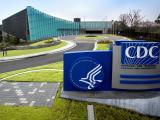Dec 11, 2007 (CIDRAP News) – Under a food safety agreement announced today by US officials, the Chinese government pledges to register exporters of food to the United States, inspect shipments before they leave China, and set up a system to trace food products through the production system.
The agreement announced today by the US Department of Health and Human Services (HHS) also provides for increased information sharing between the two countries and better access for US officials to inspect food processing sites in China, HHS officials said in a news release.
The pact was triggered by a series of tainted-import incidents in recent months, including chemically contaminated pet food and seafood containing unauthorized drugs. HHS simultaneously announced an agreement with China to enhance the safety of Chinese drugs and medical devices exported to the United States.
Asserting that the accords will make "scores" of imported household items safer, HHS Secretary Mike Leavitt said in a statement, "The agreements satisfy our firm principle that any country that desires to produce foods for American consumers must do so in accordance with American standards of quality and safety. To help accomplish this, the two documents apply a three-pronged strategy of registration, certification, and verification."
The major elements of the food and feed agreement, according to HHS, include the following:
- Exporters of food to the United States will be required to register with China's General Administration of Quality Supervision, Inspection, and Quarantine (AQSIQ) and agree to annual inspections to ensure that their products meet US standards. HHS's Food and Drug Administration (FDA) will maintain an online list of registered firms, and the AQSIQ will notify the FDA of firms that have lost their registered status.
- To contain and resolve safety problems, China will "implement a system to trace products from the source of production or manufacture to the point of exportation."
- China will set certification requirements to help ensure that products for export meet US standards. AQSIQ inspectors will check shipments and issue certificates with identification numbers that will also be sent to the FDA. The two countries will cooperate to set up a secure system to prevent counterfeit certificates.
- Each country promises to "notify the other within 48 hours of the emergence of significant risks to public health related to product safety, recalls, and other situations."
- The AQSIQ "will assist and facilitate" FDA inspections of farms and food-processing sites in China, and the two countries will develop joint training programs for food safety inspectors and enforcers.
- HHS and the AQSIQ will appoint a working group to meet within 60 days to spell out implementation activities and set performance measures.
Leavitt said the new agreement is in line with the Action Plan on Import Safety he unveiled on Nov 6. That plan was the product of the Cabinet-level Interagency Working Group on Import Safety, launched by President George W. Bush in July in the wake of various problems with goods imported from China.
Announcement of the agreement with China comes little more than a week after a report by the FDA's Science Board said decades of inadequate funding and rapidly growing responsibilities have left the FDA struggling to fulfill its mission.
News coverage in recent months has suggested that problems with imported Chinese food have been frequent and persistent. For example, a Washington Post report published May 20 said the FDA had detained 107 Chinese food shipments at US ports in April. Examples included dried apples preserved with a cancer-causing chemical, catfish containing banned antibiotics, scallops and sardines coated with "putrefying" bacteria, and mushrooms laced with illegal pesticides.
Also, an Associated Press report published in April said the US Department of Agriculture determined that only about 6% of Chinese farm products were considered pollution-free in 2005.
See also:
Dec 11 statement by HHS Secretary Leavitt
http://www.hhs.gov/news/press/2007pres/12/20071211a.html
Nov 7 CIDRAP News story "Food safety plan taps others for inspection help"
Nov 6 CIDRAP News story "US food safety plan calls for FDA recall power"
Dec 5 CIDRAP News story "Report says stingy funding has put FDA in crisis"




















